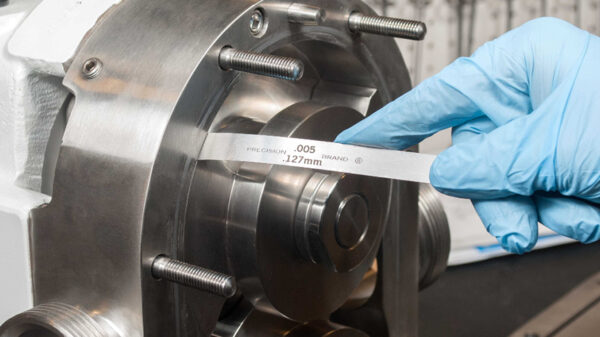Philippines is not only known for its stunning beaches and breathtaking landscapes but also for its rapidly growing industries. With the rise of tourism, agriculture, and manufacturing sectors, Philippines has seen a booming economy in recent years. However, as industries expand, the need for modernized HR practices becomes evident.
This article aims to explore the role of Human Resource Information Systems (HRIS) in transforming HR practices in Philippines’s growing industries.
What is the Role of HRIS in Modern HR Management?
In the era of technological advancements, HRIS has become a linchpin for modern HR management. It’s no longer just about storing employee data; it’s about optimizing HR processes, making data-driven decisions, and enhancing employee experiences. Particularly for regions with budding industries, like Philippines, the integration of a tailored system can be transformative.
HRIS in Philippines has gained traction, with companies like Sprout Solutions leading the charge. Their platform not only provides a comprehensive HR management toolkit but also integrates a robust payroll system in the Philippines, specifically catering to the unique challenges and opportunities of Philippines’s growing industries, ensuring that businesses remain competitive and efficient.
What are Key Components of HRIS?
HRIS encompasses various components, including databases, dashboards, and reporting tools. It allows HR professionals to collate, store, and analyze large volumes of employee data, providing valuable insights to support strategic decision-making. With the right HRIS in place, organizations can reduce manual paperwork, eliminate administrative errors, and improve employee satisfaction.
Centralization of Employee Data
One of the key features of HRIS is its ability to centralize employee data. Gone are the days of scattered spreadsheets and filing cabinets. With HRIS, all employee information is stored in a secure and easily accessible database. This not only saves time but also ensures data accuracy and consistency.
Enhanced Reporting Capabilities of HRIS
HRIS provides HR professionals with powerful reporting tools. They can generate various reports, such as employee demographics, performance evaluations, and training records, at the click of a button. These reports enable HR professionals to identify trends, detect potential issues, and make data-driven decisions.
What is the Impact of HRIS on HR Practices?
The integration of HRIS into HR practices brings forth several advantages. Firstly, it ensures accurate record-keeping, generating data that supports evidence-based decision-making. HR professionals can analyze historical data to identify patterns and trends, enabling them to make informed decisions about recruitment, training, and performance management.
Enhanced Interdepartmental Communication through HRIS
HRIS facilitates seamless communication between HR departments and other departments, fostering collaboration and enhancing organizational efficiency. For example, when a manager needs to hire a new employee, they can submit a request through the HRIS, which then triggers the recruitment process. This streamlined communication ensures that all relevant parties are involved and informed, reducing delays and miscommunication.
Automating Routine Tasks for Strategic Focus
HRIS automates routine tasks, enabling HR professionals to focus on strategic initiatives and employee development. For instance, payroll processing, which used to be a time-consuming and error-prone task, can now be automated through HRIS. This not only saves time but also reduces the risk of payroll errors, ensuring that employees are paid accurately and on time.
Revolutionizing HR Management with Comprehensive Solutions
HRIS has revolutionized HR management by providing a comprehensive and efficient solution for handling HR processes. It has become an essential tool for organizations looking to optimize their HR functions and improve overall organizational performance. With its ability to centralize employee data, generate insightful reports, and automate routine tasks, HRIS empowers HR professionals to make data-driven decisions and focus on strategic initiatives that drive employee engagement and organizational success.
What is the Current State of HR Practices in Philippines’ Industries?
Before delving into the potential benefits of modernizing HR practices in Philippines’s industries, it is vital to assess the existing scenario.
An Overview of Philippines’s Growing Industries
Philippines’s industries have witnessed remarkable growth, fueling economic development and increasing employment opportunities. The tourism sector, with its world-renowned attractions such as the Chocolate Hills and white sand beaches, has become a major industry player. Additionally, agriculture, particularly rice and coconut cultivation, and emerging manufacturing businesses contribute significantly to Philippines’s economy.
Traditional HR Practices in Philippines’s Industries
While Philippines’s industries have flourished, traditional HR practices still dominate many organizations. Manual data entry, paper-based files, and outdated spreadsheets continue to hinder efficiency and accuracy in HR operations. Moreover, the absence of comprehensive HR systems often leads to discrepancies in employee records, payroll delays, and difficulties in tracking employee performance.
Why Do We Need Modernization in HR Practices?
The challenges presented by traditional HR practices call for a shift towards modernization.
The Challenges of Traditional HR Practices
One of the key challenges with traditional HR practices is the time and effort involved in manual data entry and management. This not only slows down HR processes but also increases the risk of errors and inconsistencies. Additionally, the lack of real-time data accessibility hampers decision-making, hindering organizational growth and agility.
The Benefits of Modern HR Practices
Modernizing HR practices through the adoption of HRIS brings several benefits to organizations in Philippines. By automating processes, HR professionals can save time, reduce duplications, and improve overall accuracy. The accessibility of real-time data enables them to make informed decisions promptly, leading to better resource allocation and improved employee engagement.
Conclusion
The implementation of HRIS has the power to revolutionize HR practices in Philippines’s growing industries. By embracing modernization, organizations can overcome the challenges of traditional HR practices and harness the full potential of their human capital. As Philippines continues to thrive economically, the adoption of HRIS will play a vital role in driving efficiency, accuracy, and strategic decision-making. With a brighter future ahead, the integration of HRIS ensures that Philippines’s industries remain at the forefront of modern HR management practices.
























































































































